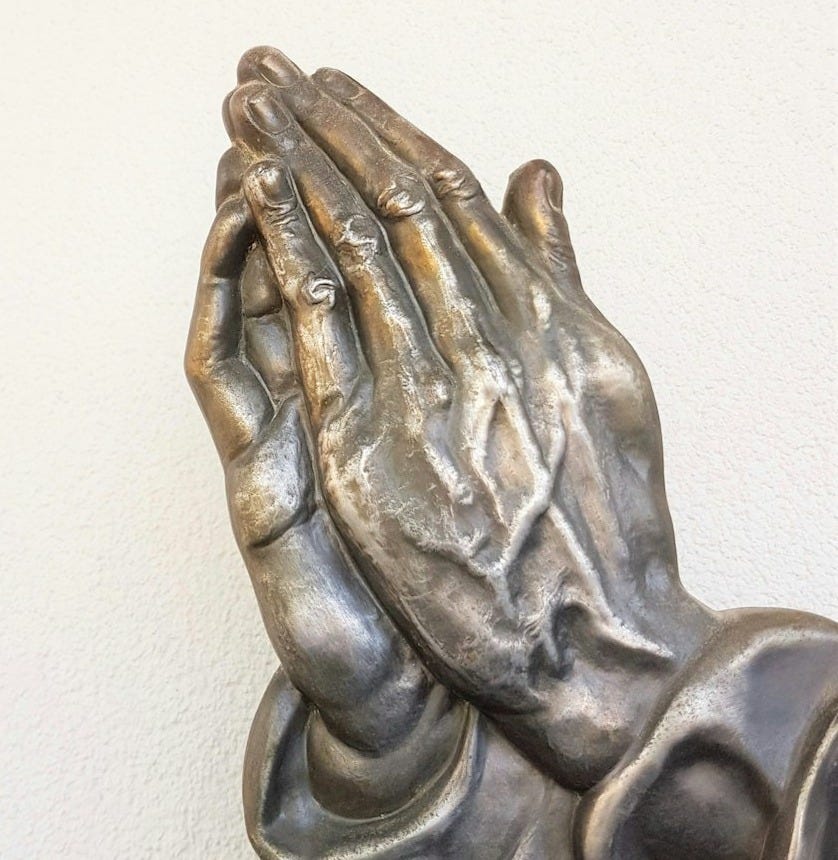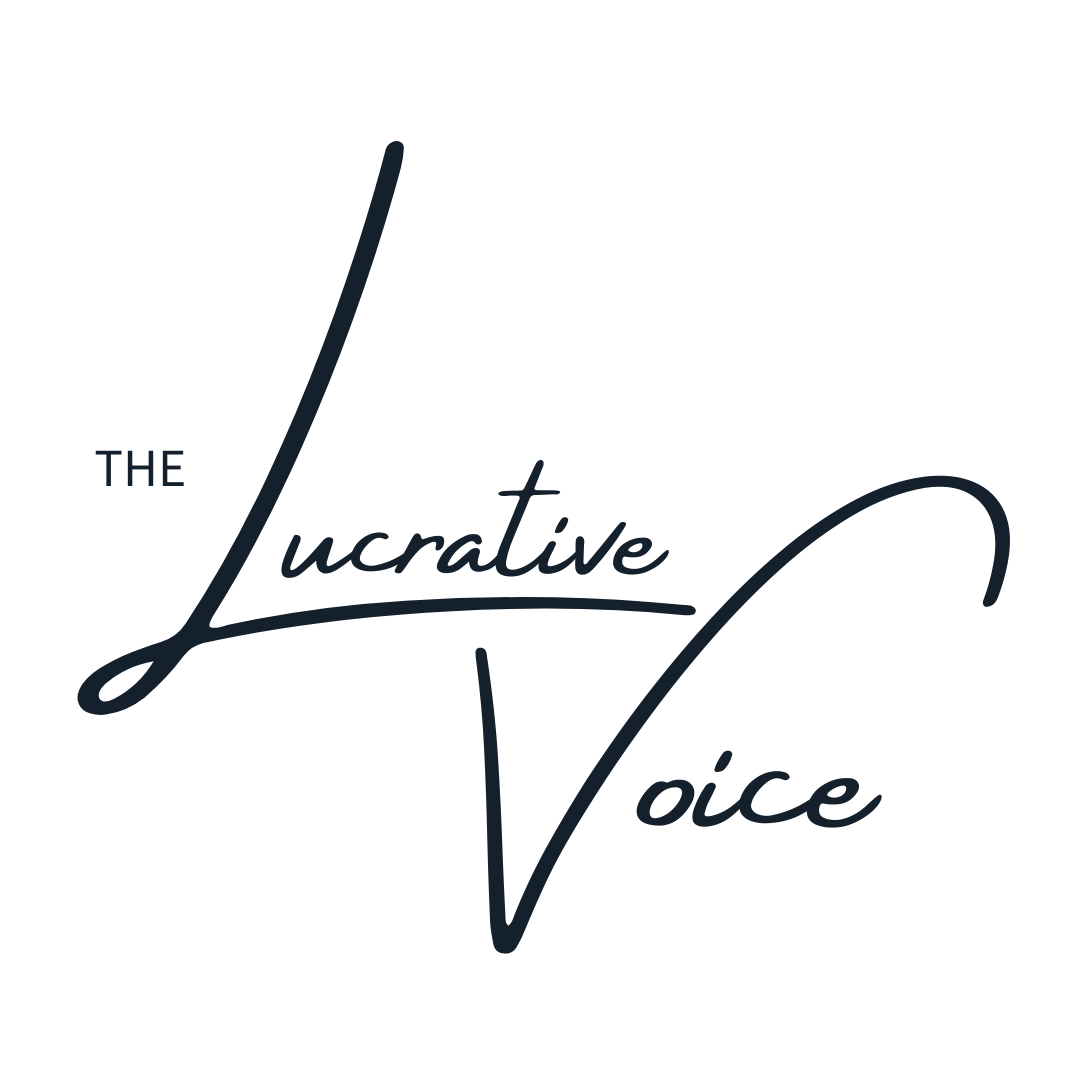The Work Is Holy. The Cost Is Ours.
A Pre-Holy Week Reflection for Vocal Artists in the Shadows of Ministry.
This is part of a Psalms of Provision series on artistic labor, applause, and the quiet systems that keep us invisible. If you’ve ever wondered why you feel so drained after doing work you love—this one’s for you.
This is a follow-up to my previous piece, The Truth About Church Work for Professional Classical Singers. Check it out first if you haven’t already.
You’ve probably heard these phrases before:
“We’d love to pay more, but our budget is limited.”
“It’s not Carnegie Hall.”
“We consider this ministry, not employment.”
And in many cases, those may seem to be genuinely honest limitations.
Not every church can double their budget.
Not every institution is flush with cash.
We know that.
We’ve always known that.
But here’s what’s harder to acknowledge:
Sometimes they wouldn’t need to pay more—if they were open to supporting us in other ways.
Most singers aren’t asking for six-figure salaries—or even five figures—from a weekend gig.
But when the role requires 8 to 12 hours of commitment every week—not including holidays and special services—many of us can’t help but ask:
Why is it that, after showing up prepared, punctual, robed, rehearsed, and rearranged around everyone else’s schedule…
We’re still treated as expendable.
Voiceless.
Not fully part of the community we’re serving.
At times, we’re seen less like artistic collaborators—and more like background staff.
And for many of us, more than the pay itself, that is the real injury.

✂️ Underpaid is one thing—Unacknowledged is another.
When singers say they feel drained from church work, it’s often not just about the check.
It can also be because far too often:
Most don’t ask what we do the rest of the week.
Most don’t think to refer us when someone needs a teacher or mentor.
Most don’t think to offer to connect us to donors, collaborators, or opportunities.
Most don’t think to offer visibility for our studios, businesses, or next projects.
Most don’t want to think about how many of us are stitching together multiple under paying gigs just to survive.
The moment the postlude ends, we don’t always disappear because the doughnuts are stale. Sometimes the Uber app is offering $32.09 to take someone 12 miles away to the airport, which is another 40+ miles away—and they’re flying Spirit, so don’t expect a decent tip!
The same people who clap for us during the service can often seem to forget us once coffee hour begins.
Or we get the same “small talk” comments like:
“When I was your age, I worked two summer jobs to pay for school.”
“You should be on American Idol!”
“I would’ve done a paper route before church!”
Some talk to us like we’re still college students—even when we hold graduate degrees and have performed around the world for decades.
It brings a whole new meaning to “going through the motions.” And the irony? Sometimes those comments come from people a little too close to my own age!
🎭 So is this just Underpayment?—Or is it Containment?
It’s the quiet set of expectations that say:
We can show up.
We can sing beautifully.
We can help create moments of reverence or transformation…
But we cannot:
Ask for visibility or advocacy.
Outgrow the role.
Show ambition without making someone uncomfortable.
Leave and expect to be remembered as more than “the soloist.”
We are seen as voices—not full people.
As roles—not peers.
🍰 And let’s be honest…
Many institutions want to have their cake and eat it too and keep things just as they are.
They don’t necessarily want to pay more—
But they also don’t really want you to leave.
They want the predictability and convenience.
Which creates an unspoken expectation:
“Stay grateful. Stay quiet. Stay exactly where we met you.”
Not entirely powerless—just powerless enough to keep showing up without asking for more.

💡 But support doesn’t only have to come in dollars.
And when even that’s absent, the message becomes clear.
If an institution truly wants to support its musicians, there are many ways to start:
Feature our work in your bulletins, newsletters, or online
Refer students or clients to our studios
Invite us to lead a workshop or guest teach
Hire us for weddings, funerals, or private events—for actual wages
Introduce us to patrons or artistic partners
Ask what we’re building outside of Sunday—and how the community might uplift it
Offer to allow us to use the rehearsal room that goes unused 6.7 days a week.
None of these things require a budget increase.
But any one of them could make a real difference.
💔 So No—It’s not just about the money.
It’s about the visibility, the reciprocity, and the deeper sense of care.
When singers say we feel unseen, it’s not always about payment.
It’s about being remembered, respected, and valued as full professionals with full lives.
And when we speak up—like I'm doing here—we may get labeled “entitled"—
As if simply asking to be supported in the way others are is somehow unreasonable.
It’s not ego.
It’s economic self-respect.
Most of us aren’t trying to “get rich” from this work.
We’re simply trying to sustain the careers we trained for—
Without losing our financial, creative, or emotional footing along the way.

📉 The Deeper Issue?
There’s no clear economic path forward for most classical singers in these settings—it’s a “dead-end” job.
Unless you're next in line for a Music Director role (and even then, that’s a long shot), there’s no economic ladder.
You can:
Be excellent for years
Still earn what you were paid as a grad student
Be overlooked when someone with a flashier résumé applies
You can climb the prestige ladder—bigger churches, more ornate liturgies, stronger incense—and still not reach sustainability.
And it wouldn’t hurt as much… if it was normal to be lifted in other ways.
But too often, instead of a ladder, we get applause.
Instead of opportunity, we get muffins.
Instead of partnership, we get silence.

⚠️ So again—this isn’t just about the money.
It’s about the patterns that leave us feeling invisible.
And let’s be real—there are few too many of us who would be better treated with more upward potential working at Walmart.
Because certain systems benefit from keeping us right where we are.
They get beauty without responsibility.
Presence without partnership.
The illusion of cultural richness—without ever asking whether those creating it can afford to come back next week.
And if we step away? Build something new? Say no?
Suddenly, we’re “less committed.”
Suddenly, we’re “not available.”
Suddenly—we’re gone.
💬 So here’s the truth:
You don’t have to pay us more—
if you’re willing to support us in the ways that cost nothing.
But if even that feels like too much?
Then maybe it’s time to stop calling this ministry.
Because ministry, at its best, is mutual.
Final Word
Don’t confuse our capacity to pivot
with your permission to underpay.
Many of us have figured out how to survive.
The real question is:
Why are you still so comfortable asking us to?

🔧 Addendum: For Singers Who Want to Start the Conversation
If this resonated—not just in your mind, but in your body—you’re not alone.
Maybe it’s shown up in your exhaustion.
In the silence after an awkward “thank you.”
In the creeping thought: How long can I keep doing this?
If you're ready to open the door—but unsure how—here’s one thing to remember:
You don’t have to demand.
You can invite.
🗣️ Things you could consider saying to a trusted music director, clergy member, or congregant:
(And if you’re not sure who that person is yet, that’s okay. Start with any person who’s shown even a glimmer of interest in your work beyond the service.)
“I’m thinking about long-term sustainability. Could I share how this role fits into my bigger career picture?”
“I really value this work. I wonder if there are ways the community could help me grow beyond it, too.”
“Do you ever refer musicians or teachers to others in the congregation? That kind of support makes a huge difference.”
“I’d love to talk more about how professional musicians sustain themselves these days—would you be open to that?”
These aren’t confrontations.
They’re invitations.
And yes—these conversations can feel incredibly awkward at first.
Especially in communities where gratitude is expected and hierarchy is unspoken.
It can feel like you’re breaking a social rule just by naming your needs.
But that discomfort doesn’t mean you’re wrong.
It means you’re trying to create a new kind of dialogue.
You don’t owe anyone a performance of humility.
You don’t have to wait for burnout.
You don’t have to keep shrinking just to stay welcome.
You’re not just a voice.
You’re a whole person.
With a career. With a story. With a future.
If your community truly values you, they’ll value that, too.
And if they don’t?
That clarity—painful as it might be—is the beginning of something far more honest.

☕️ Coffee Hour Conversation Starters (Soft Power Edition)
Here’s how to drop the hint—without making it weird.
🔎 To spark curiosity:
“Did you grow up around music? I actually teach and perform outside of here too—happy to share more if you're curious.”
“I’m working on a new concert project—want to see a clip sometime?”
“A lot of people here only know me from Sundays—I’ve got some cool projects coming up.”
🤝 To invite reciprocity (without being transactional):
“I love singing here—it’s been grounding. Outside of this, I also run a studio. If you hear of anyone needing lessons, I’d love to connect.”
“Do you know any other places nearby that host concerts? I’m looking to expand a bit.”
“You seem well-connected—what’s your background? I always love hearing how people ended up here.”
💬 To build authentic connection:
“I never get to chat with folks after services—what drew you to this community?”
“This music means a lot to me—what’s your favorite part of the service?”
“You seem really invested here—any favorite memories over the years?”
💼 To plant your professional identity:
“It’s always a dance balancing Sunday work with weekday teaching—I’m curious, do you know other musicians in the area?”
“I’ve been reflecting a lot on what sustainability looks like for artists these days—it’s definitely not one-size-fits-all anymore.”
🔁 Pro Tip:
If they seem open, follow up with:
“If you ever hear of someone needing [lessons / performers / music coaching / Tutoring / etc.], feel free to keep me in mind. It really helps.”
It’s not salesy.
It’s sincere.
And it shifts their perception from:
“Oh, they sing at my church…”
to
“Oh—this is a professional I could support.”
📣 Share & Stay Connected
✝️ This piece is a follow-up to The Truth About Church Work for Professional Singers and part of a special Holy Week series on artistic labor, applause, and the quiet systems that keep singers invisible.
If this spoke to something you’ve lived but couldn’t name, consider forwarding it to a singer—or church—that needs to hear it too.
With Love & Gratitude,
Brian
The rest of the Psalms of Provision Series:

P.S. If you’re new here, thank you for joining me. Allow me to introduce (or reintroduce) myself and explain what I do:
This publication, The Lucrative Artist, is where I write about the quieter costs of artistic work—especially when it’s underpaid, overlooked, or misnamed as “ministry.” It’s a space for naming what’s true, reclaiming artistic self-worth, and offering clarity to those navigating the tension between beauty and burnout.
If you’re here for that, you’re in the right place.
My other publication is The Lucrative Voice—is now the home to my coaching work and more formal business writings. It’s where I help high-achieving creatives, professionals, and entrepreneurs rebuild their income from a place of self-respect, voice, and structural alignment. If you’ve ever wondered what it would mean to be well-paid without selling out, that’s what I teach.
You're welcome to follow both—or stay where your heart feels most seen. I’ll eventually write a post for both with more detail. Thank you again for being here.
And if something here stirred something deeper—or you’re ever curious about working with me—feel free to send me a message. I’d love to hear from you.











Thanks, Brian! I love that you not only identify the problem, but you offer clear paths for solutions that could really help singers. Well done!